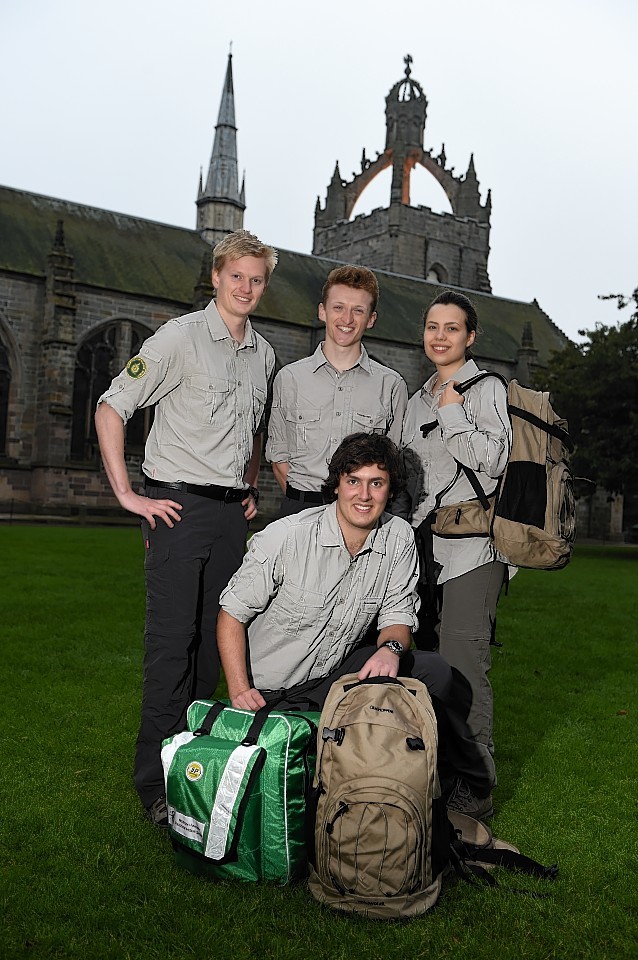Four medical students from Aberdeen University are preparing to travel across the world to explore the rainforests of South America.
The group will out first-of-its-kind scientific research with the native tribes of Guyana.
The former British colony, located to the east of Venezuela, is currently experiencing a mass migration of its indigenous people, the Guyanese Amerindians, from its jungles into its increasingly Westernised cities.
And the two groups – identical genetically but living in vastly different environments – have given the four students the opportunity to study how the junk food, fizzy drinks and pollution of Western culture affects the body’s blood pressure, body mass index and respiratory conditions compared to the control group of hunter-gatherer tribesmen of the region, who still live out their lives much the same as their ancestors centuries ago.
Biomedical students John Mitchell, 24, Will Paine, 20, Bryan Dunsmore, 21 and Genevieve Marsh-Feiley, 21 will set off on the month-long expedition – made possible thanks to a £5,000 grant from the Scientific Exploration Society – on October 27.
Expedition leader Mr Mitchell said similar studies studying the effects of Westernisation have been carried out in the past, but theirs was unique as they would be speaking to a tribe that has not been fully integrated into society.
He said: “What people have found is that once these cultures get exposed to the European’s high-fat, high-sugar lifestyle, they are basically so much more susceptible to conditions like diabetes, cardiovascular diseases, and so on, the statistics are absolutely crazy.
“What we’re really doing, the whole point of this study is to show scientifically that non-westernised Amerindians naturally have low blood pressure and so on, and therefore those that have moved to the city have developed these conditions because of the city lifestyle itself, and if that is the case to provide the Guyanese Government with scientific evidence to implement protective measures.”
The team will work with students from Guyana University to examine 200 “urbanised” Amerindians, and will trek deep into the jungle to examine a further 200 “non-westernised” Amerindians for the -9 project.
To follow their trip, search for Aberdeen Guyana Research Expedition 2015 on Facebook.
